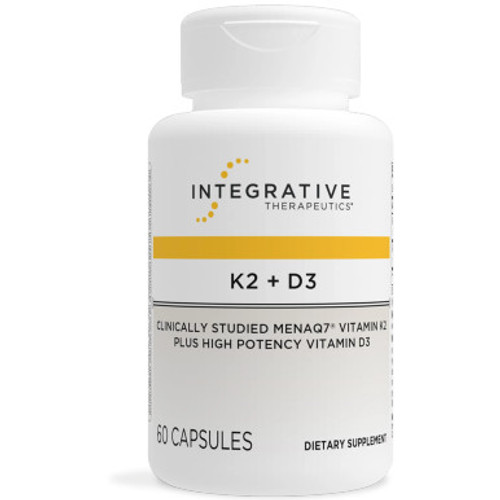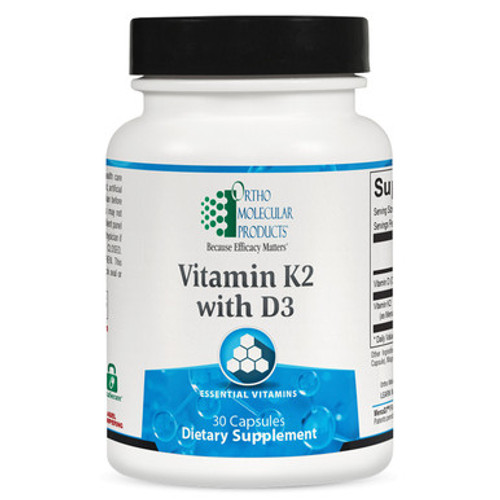Xymogen K2-D3 5000 – High-Potency Support for Bone and Cardiovascular Health
Xymogen K2-D3 5000 is a powerful blend of vitamin D3 and vitamin K2 designed to support optimal bone strength, cardiovascular function, and healthy blood clotting. This synergistic formula promotes the effective utilization of calcium in the body, ensuring it is directed to where it is most needed—your bones, not your arteries.
Xymogen K2-D3 5000 Benefits
- Supports bone health by promoting proper calcium integration into the bone matrix
- Enhances cardiovascular health by influencing arterial calcium deposition
- Encourages normal blood clotting by activating vitamin K-dependent proteins
- Helps maintain healthy immune function through optimal vitamin D3 levels
- Offers a clean, hypoallergenic formula free of GMOs and common allergens
How Xymogen K2-D3 5000 Works
Xymogen K2-D3 5000 combines 5,000 IU (125 mcg) of vitamin D3 (cholecalciferol) with 90 mcg of vitamin K2 (menaquinone-7), working together to regulate calcium balance in the body. Vitamin D3 enhances calcium absorption from the diet, while K2 ensures calcium is deposited into bones and not arterial walls. This targeted action supports both strong bones and a healthy heart. With minimal side effects and no artificial ingredients, it is a safe choice for daily use when guided by a healthcare provider.
Who Should Use Xymogen K2-D3 5000
- Ideal for individuals seeking to support joint, bone, and skin health naturally
- Especially beneficial for those experiencing age-related bone density loss
- Supports cardiovascular health and proper calcium utilization
- Great for individuals with limited sun exposure or restricted diets
- Recommended for those at risk for vitamin D or K deficiencies
Supplements support your health but do not replace a balanced diet. Always check with your healthcare practitioner if you have doubts about a new supplement. Or, you may book a FREE product consultation at Holistic Health Partners. You may want to look at our other Multivitamin products.
Other Ingredients: HPMC (capsule), microcrystalline cellulose, ascorbyl palmitate, and silica.
Does Not Contain: Wheat, gluten, yeast, soy protein, dairy products, fish, shellfish, peanuts, tree nuts, egg, GMOs, artificial colors, sweeteners, or preservatives.
Caution: Consult your healthcare professional prior to use. Individuals taking medication should discuss potential interactions with their healthcare professional. Consider total vitamin K intake (food + supplements) if you are taking blood-thinning medication.
Storage: Keep closed in a cool, dry place out of reach of children.
These statements have not been evaluated by the FDA. This product is not intended to diagnose, treat, cure, or prevent any disease.








